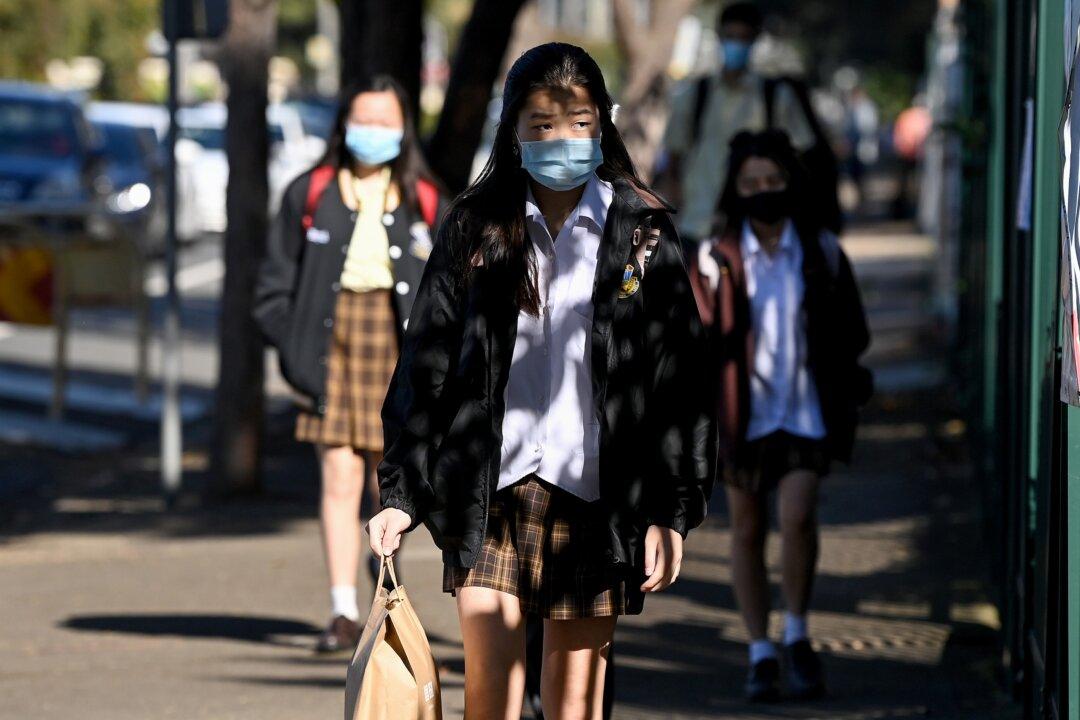A flood of nearly 477,000 students will return to schools in Western Australia (WA) on Monday, Jan. 31, bringing with it a slew of new requirements aimed at controlling the spread of the Omicron variant of the CCP virus.
High school students and all staff in WA will be required to wear masks upon returning to class, with all 900 public education facilities now retrofitted with a total 12,000 high-efficiency particulate air (HEPA) air purifiers and 1,500 carbon dioxide (CO2) monitors.





